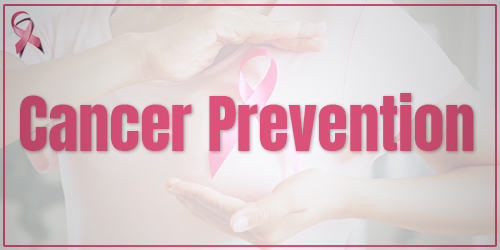Cancer prevention encompasses a range of strategies and interventions aimed at reducing the risk of developing cancer. It involves adopting healthy lifestyle practices, undergoing regular screenings, identifying and managing risk factors, and leveraging medical interventions such as vaccinations and genetic counseling. The primary goal of cancer prevention is to empower individuals to make informed choices that can significantly lower their likelihood of developing various types of cancer.
The Efficacy of Cancer Prevention: Separating Fact from Fiction
The question of whether cancer prevention truly works is a critical one, often surrounded by misconceptions and uncertainties. While cancer prevention cannot guarantee complete immunity from the disease, it has been proven to significantly reduce the risk of developing certain types of cancer.
Scientific research and epidemiological studies consistently demonstrate the effectiveness of cancer prevention strategies in lowering cancer incidence rates. For example, lifestyle modifications such as maintaining a healthy weight, regular physical activity, tobacco cessation, and adopting a balanced diet rich in fruits and vegetables have shown tangible benefits in reducing the risk of various cancers.
Moreover, advancements in medical science have led to the development of preventive measures such as vaccines for certain cancer-causing viruses (e.g., HPV and hepatitis B) and targeted interventions for individuals with high genetic predispositions to specific cancers.
7 Key Steps For Cancer Prevention
Here are the revised steps for cancer prevention in a concise and improved format:
- Avoid Tobacco Use:
Avoid smoking or chewing tobacco, as it is linked to various cancers like lung, mouth, throat, and pancreas. Steer clear of secondhand smoke to minimize the risk of lung cancer.
- Adopt a Healthy Diet
Include plenty of fruits, vegetables, whole grains, and legumes in your diet. Limit intake of processed meats, refined sugars, and high-calorie foods. Drink alcohol in moderation or avoid it altogether, as excessive alcohol consumption increases cancer risk.
- Maintain Healthy Weight and Stay Active
Maintain a healthy weight to reduce the risk of breast, prostate, lung, colon, and kidney cancers. Engage in regular physical activity for at least 150 minutes per week to further lower cancer risks, particularly for breast and colon cancers.
- Protect from Sun Exposure
Avoid midday sun and seek shade when outdoors. Wear protective clothing, sunglasses, and broad-spectrum sunscreen with SPF 30 or higher. Refrain from using tanning beds or sunlamps, as they increase the risk of skin cancer.
- Get Vaccinated:
Consider vaccination against hepatitis B and human papillomavirus (HPV) to reduce liver cancer and cervical/genital cancers' risk, respectively.
- Avoid Risky Behaviors
Practice safe sex to minimize the risk of sexually transmitted infections (STIs) like HPV and HIV, which can lead to various cancers. Avoid sharing needles, as it can increase the risk of HIV, hepatitis B, hepatitis C, and subsequent liver cancer.
- Regular Medical Check-ups
Schedule regular screenings and self-exams for skin, colon, cervix, and breast cancers to detect any abnormalities early for effective treatment. Consult with a healthcare provider to determine a personalized cancer screening schedule based on your risk factors and age.
What Else Can You Do For Cancer Prevention?
Screening tests play a crucial role in detecting cancer early, enhancing treatment outcomes. Women should prioritize breast, cervical, and colon screenings, while men should focus on colon screenings. Heavy smokers aged 55 to 74 should discuss the potential benefits and risks of low-dose CT lung cancer screening with a doctor. Alongside these, occasional exams for thyroid, testicular, ovarian, lymph node, oral cavity, and skin cancers are recommended by the American Cancer Society. Individuals with heightened cancer risk may require earlier and more frequent screening than the general population.














